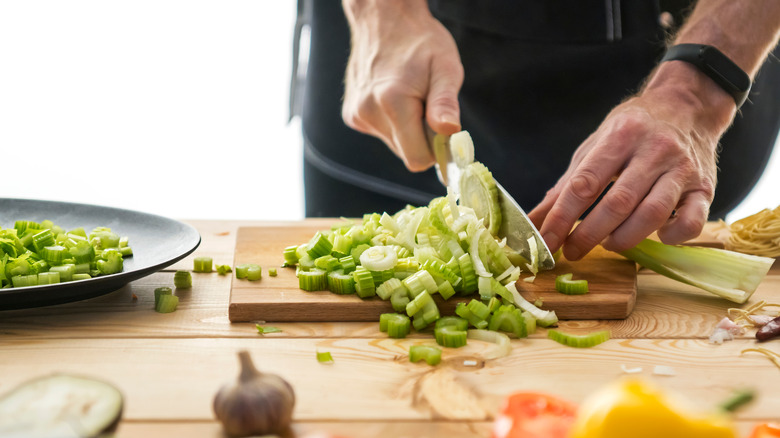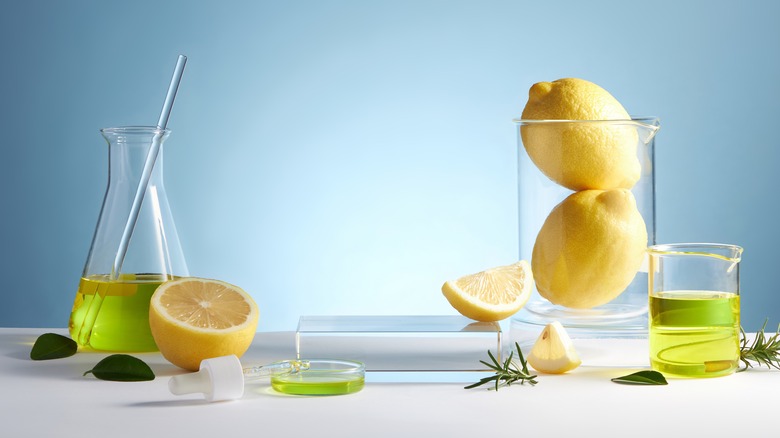The Way You Chop Your Vegetables For Tuna Salad Matters
Mise en place (which translates to "putting in place") is an integral part of any cooking process and how much attention it receives can make the difference between a simple or sublime dish. Even humble tuna salad benefits from careful workspace preparation. Because believe it or not, something as basic as how the vegetables are cut can make a difference.
There are multiple aspects of chopping vegetables that can affect the way they taste. Brendan Walsh, dean of culinary arts at the Culinary Institute of America, tells NPR that texture and mouthfeel can influence how we perceive flavor. Walsh proposes that rounded shapes in the mouth feel richer and so taste more luscious, than sharp edges.
Considering that we instinctively know that vision affects the way we perceive how something will taste, it stands to reason that texture is also a big factor. It's true, the size and shape of your onions and celery can have an impact on your enjoyment of a tuna melt.
But there's more to it than that!
The science behind cut and taste
If celery and onions are part of your go-to tuna salad recipe, you might want to know whether or not your vegetable-chopping technique is affecting the salad's flavor positively or not. As said, the way you chop vegetables can have an impact on how it tastes.
Consider, per an experiment conducted by Cook's Illustrated, cutting an onion from one end to the other (the two parts you remove are the ends) results in a milder flavor than an onion cut in rounds (think hamburger slices). When you cut through the rings, more onion cells are broken open, causing a chemical reaction between an enzyme called alliinases and the onion's proteins. This interaction results in the production of a stinky substance known as thiosulfinate.
Curiously, it's not the thiosulfinate's strong scent that makes us cry when we chop onions. According to the University of Wisconsin-Madison, onions also contain a sulfur compound called ASCO that reacts with the alliinases when sliced. This combination releases a chemical, similar to but not as strong as sulfuric acid, into the air.
If tweaking your veggie prep for specific results appeals to you, then it would seem that less cutting across the grain will make for a milder onion in your tuna salad. Regarding celery, it's possible that aggressive chopping will cause bitterness due to the release of polyphenols (via NPR). And so, if you're more interested in the crunch of celery than its sometimes distinctive bitter flavor, a little larger, gently cut pieces are for you and your next tuna salad dish.

